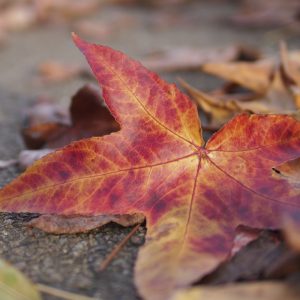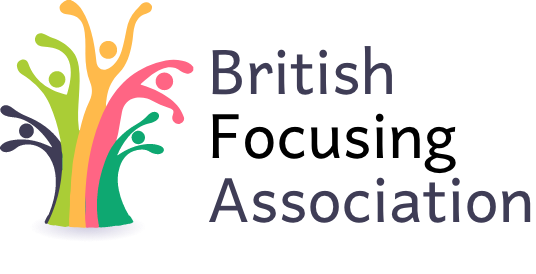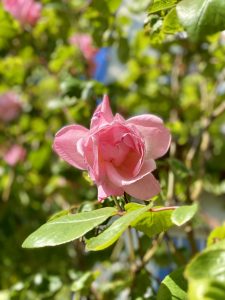
What is Focusing?
Focusing is a natural way of being with and listening to our bodily experiencing, to our deeper wisdom. Focusing can be used in many different situations. It is a wonderful self-care practice, it enhances personal growth and therapeutic work of all kinds, it has been used by activists for self care and conflict resolution, and enhances creativity. It has been used in business settings, with children, as a spiritual practice and in many different communities across the world.
Focusing prioritises bodily experiencing over cognitive understanding, received convention and usual assumptions.
This practice supports us in developing a compassionate listening to our bodily felt experience. It creates a safe, non-judgemental “being with” our own experiences that enables forward movement and change.
More about Focusing
Focusing is gentle, creative and often profound, and is a safe way of being with any experience, even the most disturbed and disturbing. It is based in an ability that most of us have, or can develop – that of listening to what our subtle inner feelings are telling us. What we find when we do so is usually fresh, new, surprising, and deeply satisfying: being with even the most terrible feelings in a Focusing way can actually feel good. Or, if we are Focusing with something ‘out there’, a problem or difficulty may start to shift of its own accord in a direction that we haven’t expected.
Useful articles
-
7th Feb 2016
An Introduction to Focusing
-
8th Feb 2016
Focusing as a Doorway for Spiritual Growth
-
8th Feb 2016
Focusing is a way of Being-with
-
8th Feb 2016
Focusing with one ‘S’
Who is it for?
- Potentially anyone wanting to create new possibilities in their life.
- Focusing helps with daily life
- When your life feels stuck in making that impossible choice
- Focusing opens up inner creativity
- Why is my work now stale?
- Where has my pizazz gone?
- Why can’t I find the words?
Focusing is a deeper relationship with one’s self
- What is just right for me?
- What do I want from life?
How do I practice?
Focusing can be practiced on your own or in partnerships either with a peer Focuser or with a paid Professional Focusing Practitioner.
Focusing is also done in peer support groups which are self-led. There are also groups (some are retreats) run by a Professional Focusing Practitioner – some groups are for Focusing practice others are on a particular theme.
Focusing can be done alone either using the Focusing steps process that has been taught or using a guided audio.
The History of Focusing and the BFA
In essence Focusing is a natural process available to everyone. Yet, as a distinct and named practice and approach, it has its history. Read on…
-
1994
In 1994 a small group of UK Focusing teachers joined together to create the British Focusing Teachers Association – now known as the British Focusing Association CIC.
-
1985
In 1985 the Focusing Institute (now the International Focusing Institute) was established in the USA.
-
1950's
Focusing was discovered in the late 1950s when Professor Eugene Gendlin of the University of Chicago researched the question: “Why is psychotherapy helpful for some people, but not others?”
Gendlin and his colleagues studied recordings of hundreds of therapy sessions and made a fascinating and important discovery: successful therapy clients were able to do something more than worry about the future or react to the past. They could pause and pay attention to what was happening in the present moment, in their bodies, in response to the problem at hand. Sometimes in ways that words could not easily convey. Gendlin called this a “felt sense,” and developed the method he called “Focusing” so that anyone could learn this profound way of experiencing breakthroughs in whatever has been holding them back.
Focusing has brought some new spaciousness into my experience and that does carry over into the rest of my life. It’s helped me get back in touch with some creative parts of myself, and also the ‘wise witness’ part of myself—a lot of that had been a bit buried—it’s opened a door—it’s been very strengthening.
Focusing helps bring an awareness of beauty and grace and ‘the positive’. I think it also gives something very precious in life today—which is space.
Focusing works, even if you are not good at it, and even if you don’t do it regularly. Whenever I want to feel relieved, self-worthy and relaxed, trusting myself again, focusing is something I can do on my own, just for me.
For me, focusing has felt like one of those occasional treats in life when something new transforms the world from within.
A lot of the time I feel there’s big stuff that I’ve pushed into a corner because it’s been unmanageable… a sort of default rejection dynamic. Focusing is a soft way of shifting out of that response and loosening and allowing what’s there—bit by bit it can get some expression

